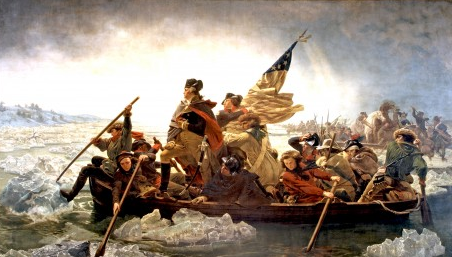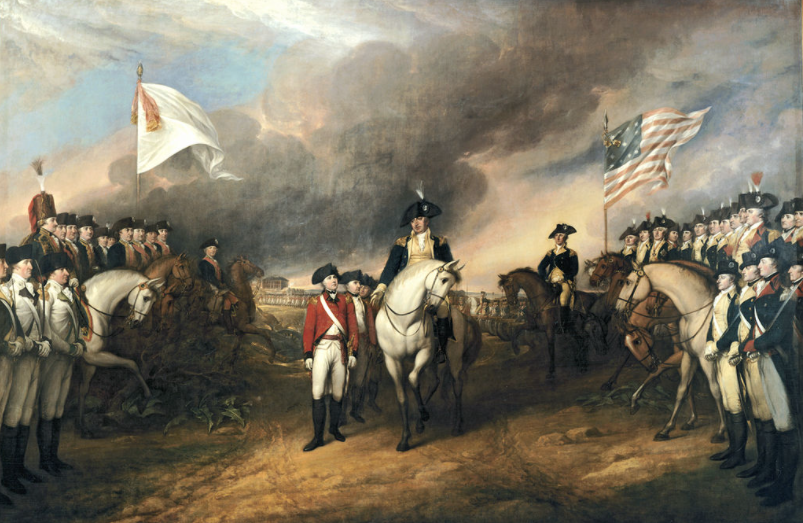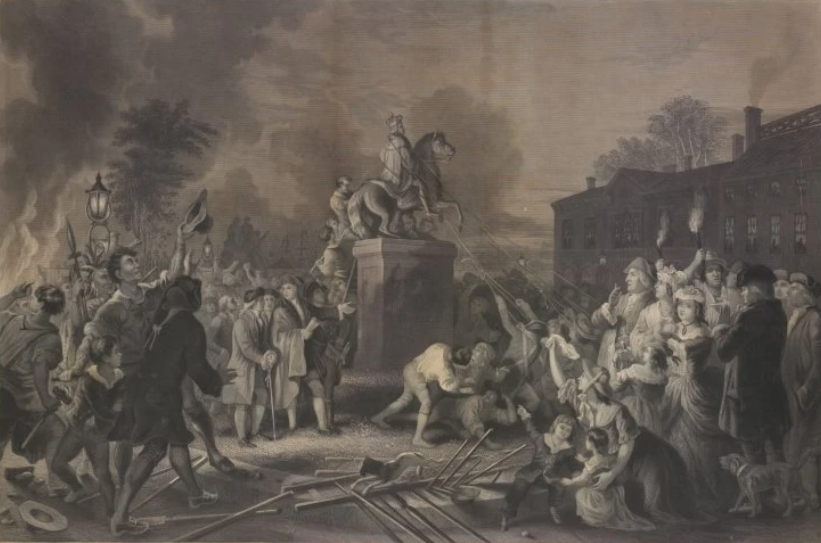
Washington crossing the Deleware, 1851, Columbia College.
Declaration of Independence: The Beginning of Freedom
The War Between Nations

Surrender of Lord Cornwallis, a painting by American artist John Trumbull depicting Cornwallis and his army (center) surrendering to French (left) and American (right) troops, at the conclusion of the Siege of Yorktown in 1781, Wikipedia
After America declared independence, the British and Americans entered a long and brutal war. Britain had many strategies and military advantages over the colonists. The United States could only obtain independence if it gained the support of Britain's enemies, such as France and Spain. France and Britain were international powers, resulting in tension between them. France was able to negotiate a treaty with Spain a few years into the conflict to join the war against the British.
"In October 1776, Franklin sailed to France to lead the diplomatic effort. His patient diplomacy combined with the American victory at the Battle of Saratoga resulted in a Treaty of Alliance with France in February 1778." (Office of the Historian)
"One of the most important effects of the Declaration of Independence was that it allowed the Revolutionary War to be seen as a war between two separate countries instead of a civil war within Britain. This allowed other world powers to supply aid to the American cause; the Declaration transformed the British civil war into a global war involving Britain, Spain, France, the Dutch Republic, and, of course, America."
~ Weebly
During the Revolutionary War, many famous battles took place such as, “...the crossing of the Delaware: In a bold move, Washington moves his troops into New Jersey on Christmas night. The patriots then surprise a force of German troops fighting for Britain at Trenton on December 26. They achieve a similar victory over British troops at Princeton on January 3, reviving hopes that the war just might be winnable.” (National Park Service) Unlike the British, Colonists had something worth fighting for. Freedom. “The colonists were ready to go and fight in the hope that one day they would truly be free.” (StudyMoose) At the end of the war, the colonists won their freedom.

Washington crossing the Deleware, 1851, Columbia College.

John C. McRae, Pulling down the Statue of George III by the "Sons of Freedom" at the Bowling Green, City of New York, July 1776 (1859); NYPL Digital Collections